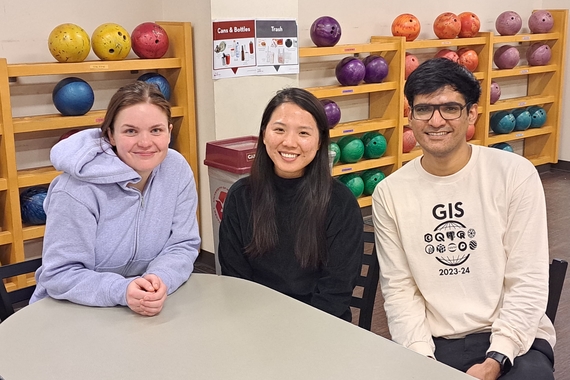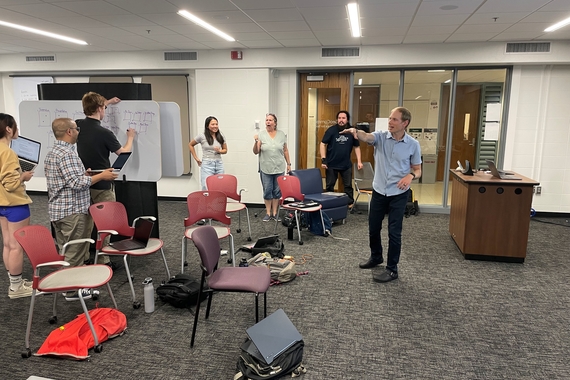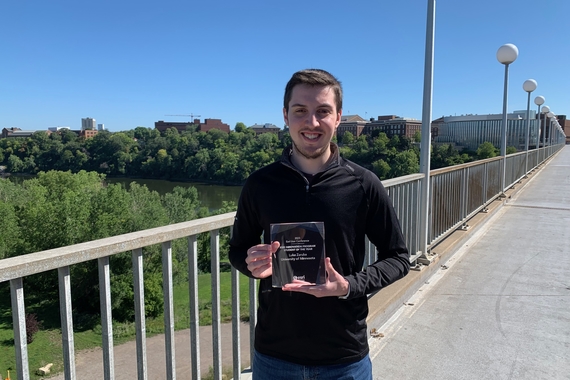Di Zhu receives 2022-2023 CURA Faculty Interactive Research Program Grant
Congratulations to Dr. Di Zhu for receiving a 2022-2023 Center for Urban and Regional Affairs (CURA) Faculty Interactive Research Program grant for his project, Sensing Geospatial Communities in Mobility Networks: How Human Movements Drive Dynamic Community Structures within the Twin Cities Metro Area. Dr. Zhu is an assistant professor of Geography and a member of the MGIS graduate faculty; his research interests include geospatial artificial intelligence, big geo-data social sensing, spatial prediction models, spatial networks, deep learning, complexity theory, and urban applications of GI Science.
The main idea behind this work is that the geography of a community is not constrained by administrative boundaries since residents routinely move around and interact with others, often beyond their local spatial context. One of the most challenging problems in community planning is understanding how fine-grained local regions are irregularly and dynamically organized by human movements. In partnership with MN Compass, Move Minnesota, and local planning agencies, this project will develop an integrated data-driven analytical framework to sense dynamic community structures within the Twin Cities metropolitan area from spatiotemporal human mobility networks. Findings from this study will provide policymakers with better information on how to match programs and resources with place-based community-defined needs such as transportation, healthcare, civic engagement, affordable housing, and public safety.
Three key research questions will be examined in this project: (1) How can we detect the dynamic geographic structure of human-driven communities from the large-scale human mobility networks within the Twin Cities metro area? (2) Can we describe and visualize the resulting dynamic community profiles? (3) What has the COVID-19 pandemic changed about our community structure? His methods involve using emerging big data and machine learning techniques to understand the dynamic socio-economic environment of communities. Detailed and useful spatiotemporal data about human movements can be extracted and analyzed from massive volunteered geographic information (VGI), such as mobile phone tracks, taxi trajectories, transit smart card records, and geo-tagged social media posts to support downstream applications.
In addition to his innovative research, Dr. Zhu teaches courses in spatial analysis, geospatial artificial intelligence, and machine learning. Congratulations to Di Zhu for this recognition and we look forward to more exciting projects that tackle challenging real-world spatial problems using innovative geospatial methods.


